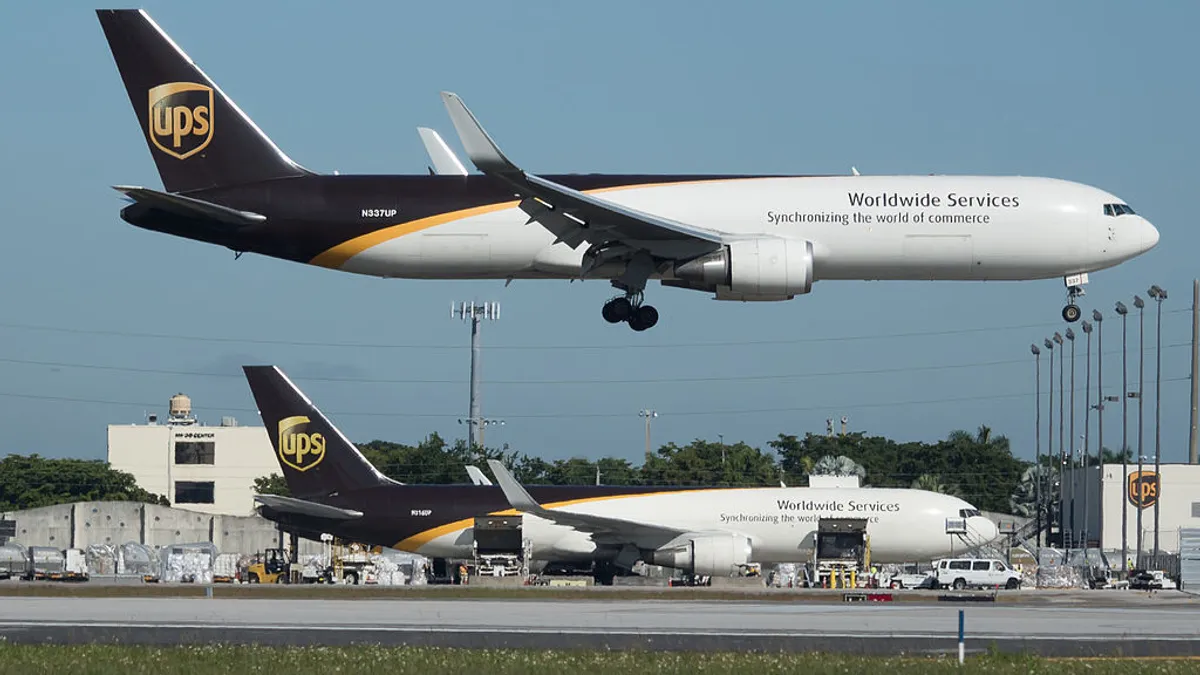Dive Brief:
- Boeing will ramp up production from 47 Boeing 737s per month to 52 per month this week after supplier Spirit Aerosystems restored prompt delivery of the aircrafts' fuselages, the Puget Sound Business Journal reported.
- Boeing sent engineers to Spirit's Wichita, Kansas factory to help get the parts manufacturing and delivery back on track in April.
- According to the report, Spirit makes about 70% of every Boeing 737 in Wichita.
Dive Insight:
An aircraft fuselage is not a shortage that can be hidden or overlooked on the factory floor. A manufacturing bay with a missing fuselage is as obvious as the lack of an aircraft at the boarding gate approaching flight time. It’s there or it isn’t … for all to see and for all to comment.
Let’s look at the manufacturing issues first. An increase of 10% in orders, as well as a change in the product mix for such large and intricate assembly, will no doubt create havoc in the supply chain. So many suppliers these days have carefully calibrated production and capacity that there is not a lot of room to modify output. And since that expansion may be a temporary condition, suppliers are reticent to invest in additional capacity or inventory.
That issue accelerates throughout the supply chain, causing downstream constraints and upstream shortages. Late shipments can also impact cash flow and quality, causing further manufacturing delays in a vicious cycle.
That Boeing kept their employees busy, and is standing behind their supplier, is evidence of trust in the process.

Supply Chain Dive
Playing catch-up is not a comfortable situation for any company. Strain on all suppliers can become evident in missed deliveries, product substitutions, and quality issues. The fact that Boeing sent a "cavalry" of engineers to help their supplier could have occurred for a number of reasons. Perhaps Boeing’s documentation was unclear and was causing manufacturing issues.
More likely, suppliers needed to get relief on specifications and tolerances in order to meet delivery and production schedules. In either case, strong engineering support is critical and certainly the right thing to do.
The second issue is all about the optics. The missing fuselages creates opportunities to second-guess sourcing and manufacturing decisions. The union advising Boeing’s president and CEO about the production delays, and perhaps the impact on the unionized workforce, allows for an "I told you so" about the outsourcing of an important assembly.
That Boeing kept their employees busy, and is standing behind their supplier, is evidence of trust in the process. All Boeing deliveries were made, thanks to the extra efforts of the supply chain and the Boeing manufacturing team.
Significant ramp-ups and ramp-downs in any production schedule will cause disruptions in the supply chain. With the increase in production normalized, it looks as if Boeing and its suppliers have weathered this particular storm. But there will certainly be others. The key is how to apply the lessons learned moving forward.













